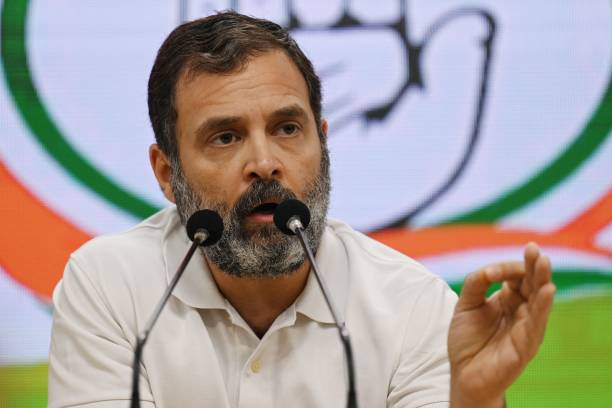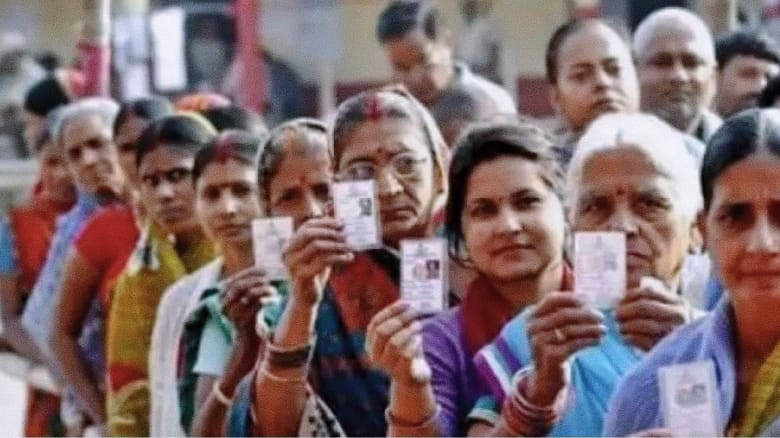Rahul Gandhi Criticizes Lateral Entry Into Bureaucracy, Labels It a Move to End Reservation and Attack Social Justice In a sharp critique of the government’s recent push for lateral entry into public service positions, Congress leader and Leader of the Opposition in the Lok Sabha, Rahul Gandhi, labeled the move as an “anti-national step.” He claimed that this policy is designed to undermine the rights of underprivileged communities, including Scheduled Castes (SCs), Scheduled Tribes (STs), and Other Backward Classes (OBCs), by bypassing the traditional reservation system in recruitment. The former Congress president made these remarks following the government’s decision to recruit 45 specialists for key bureaucratic positions such as joint secretaries, directors, and deputy secretaries through lateral entry. These roles are typically filled by officers from India’s prestigious all-India services, including the Indian Administrative Service (IAS), Indian Police Service (IPS), and Indian Forest Service (IFoS), who enter the services through the rigorous Union Public Service Commission (UPSC) examination. Gandhi expressed his concerns on social media platform X (formerly Twitter), stating that lateral entry into such positions effectively snatches away the constitutionally mandated reservations for SCs, STs, and OBCs. He argued that instead of providing equal opportunities to these marginalized groups, the government is pushing them further away from the nation’s top bureaucratic positions. “This is nothing short of an open theft of the rights of the underprivileged,” Gandhi said. “The policy of lateral entry into key ministries allows the government to bypass the reservation system, which was instituted to ensure social justice and equal representation for SCs, STs, and OBCs in the country’s administrative machinery.” Gandhi further alleged that this move is a calculated effort by Prime Minister Narendra Modi to privatize the Indian Administrative Service (IAS) and phase out the reservation system. He claimed that this push for lateral entry is part of a larger conspiracy aimed at dismantling the pillars of social justice in India, and labeled the move as “Modi’s guarantee for ending reservation.” According to Gandhi, the lateral entry process is being used to place individuals with affiliations to the Rashtriya Swayamsevak Sangh (RSS) in key government positions, bypassing the traditional, merit-based recruitment through the UPSC. “The Constitution is being attacked, and the recruitment process is being manipulated to serve the interests of a few,” he alleged. “Instead of recruiting public servants through the UPSC, they are now being handpicked by the RSS.” Gandhi also highlighted that this push for lateral entry into the bureaucracy is not just a political maneuver, but also an attack on the aspirations of thousands of youth who prepare rigorously for the UPSC exams, hoping to serve the country as part of the all-India services. “This is a direct attack on the dreams of those who work hard to clear the UPSC and serve the nation,” .
The former Congress president cited the recent controversy involving the Securities and Exchange Board of India (SEBI) as an example of what happens when private individuals are placed in key government positions. He referred to the appointment of Madhabi Puri Buch, a former private sector executive, as SEBI chairperson, and pointed out the alleged conflicts of interest that have arisen from this decision
Gandhi pledged that the INDIA bloc, a coalition of opposition parties, will strongly oppose this “anti-national step” that not only harms India’s administrative structure but also violates the principles of social justice. “We will fight this tooth and nail,” he asserted.
In response to these accusations, the government defended its decision, stating that lateral entry is essential for bringing in specialized skills and expertise that are often lacking in the traditional bureaucratic cadre. An official from the Union Public Service Commission (UPSC) explained that this is the largest batch of lateral entry recruits being inducted so far, with 10 posts of joint secretaries and 35 posts of directors and deputy secretaries being filled through this method. The recruits will serve on a contract basis, allowing the government to tap into talent from outside the traditional civil services. The government maintains that lateral entry is not an attack on the reservation system but a means to improve efficiency and performance in key sectors where technical knowledge and specialized skills are required. Proponents of the policy argue that this is a common practice in many other countries, where experts from diverse backgrounds are brought into the government to enhance its functioning. Despite these reassurances, Gandhi remains firm in his belief that this move represents a dangerous trend towards privatization and the erosion of social justice. “The privatization of the IAS is Modi’s way of ensuring that reservations are done away with, and the voice of the underprivileged is silenced in the corridors of power,” he declared. Gandhi’s comments have sparked a wider debate about the role of lateral entry in the Indian bureaucracy and its potential impact on the reservation system, with many expressing concerns that the policy could have long-term implications for social justice and representation in government. The opposition has vowed to continue its fight against the policy, while the government remains committed to implementing what it views as a necessary reform in the civil services. As this debate continues, the future of lateral entry and its implications for India’s bureaucracy and reservation system remain a contentious issue, one that will likely dominate political discourse in the coming months.




